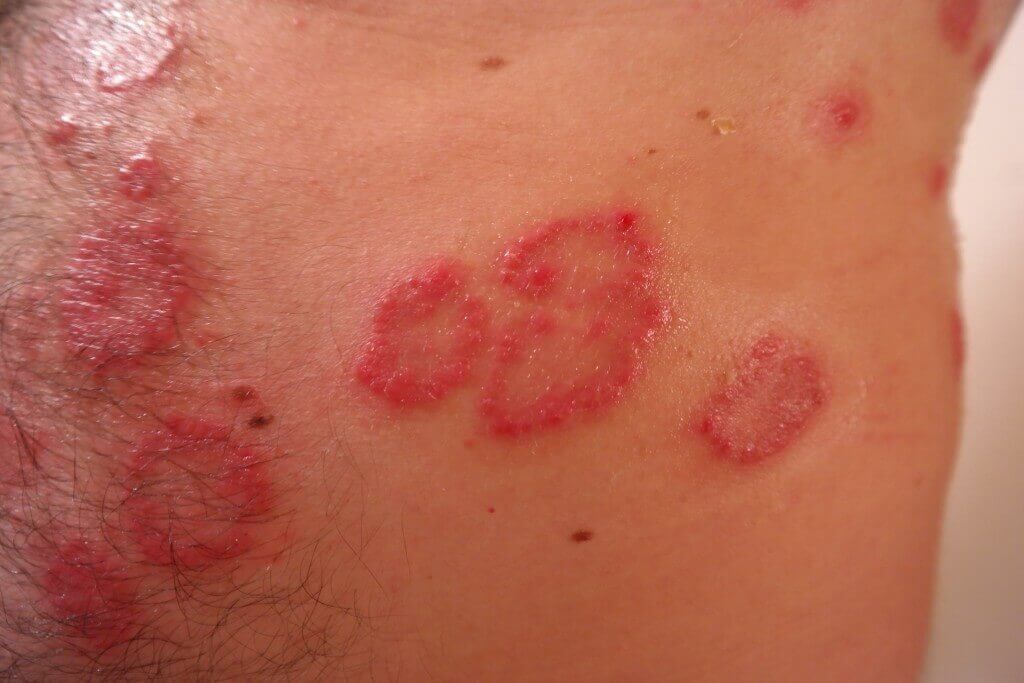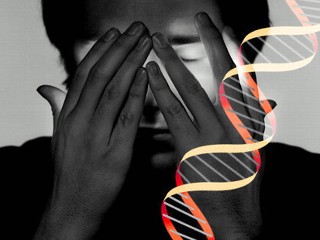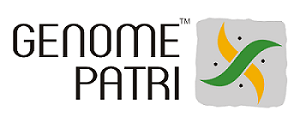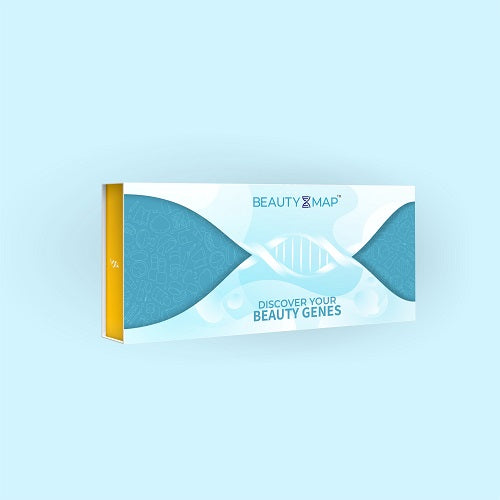Psoriasis Awareness: Stress-busters every day, keep the itch away!
Oct 30, 2017
19098 Views
An itch of any kind is a source of tremendous discomfort. Combine it with red patches and soreness and it is a true test of patience. Skin conditions like psoriasis and eczema can really cause constant disquiet and uneasiness. Limited neither to a gender, nor age, skin conditions such as Psoriasis can itch one and all.
Psoriasis is a non-contagious condition that classically involves the development of red scaly patches on different parts of the body. The skin cells multiply faster than the natural rate and thus as they reach the surface, the volume of the cells increases, causing formation of the typical red patches. It usually targets the arms, legs, scalp, torso and even the soft tissues inside one’s mouth.
This unpredictable, mysterious disease causes distress to about 125 million people worldwide. Along with it, it brings a great deal of awkwardness and embarrassment.
What are the risk factors involved?
Regrettably the exact cause of psoriasis is unknown. However, experts believe that a conspiracy of different elements encompassing family history and environmental factors are to be blamed. Some examples of these factors are medications, stress, infections, obesity, excessive alcohol consumption, smoking and severe sunburns. Different kinds of psoriasis have different triggers.
Psoriasis is an immune system disorder, where a type of white blood cells called T cells and neutrophils attack healthy skin cells instead of foreign entities. Even after almost three decades of investigations, the underlying cause of psoriasis has not been revealed and it continues to harm people all over the world.
What are the types of psoriasis?
Psoriasis can affect certain parts or the entire body. Depending on the sites, psoriasis is categorized as follows.
- Plaque psoriasis: It is the most common type of psoriasis characterized by dry, red skin and scales silver in color. These skin lesions are raised and often painful or itchy. If the lesions are agitated, they may crack and even bleed. Plaques form in those areas of the body where there is friction or scratching like the elbows, knees and the scalp.
- Inverse psoriasis: It occurs in the folds of the skin like the groin, armpits and under the breasts. The patches are a bright red and smooth that may be aggravated by sweating and brushing of the skin folds against each other.
- Guttate psoriasis: Often seen in children and young adults, this type of psoriasis is typified by small red spots that resemble the drop of water. They usually appear on the arms, legs or torso. The triggers for guttate psoriasis may be respiratory infections, skin injuries, use of certain medications like anti-malarial drugs, stress and conditions like tonsillitis. There may be a sudden single outburst of the psoriasis or the child may experience repeated episodes.
- Pustular psoriasis: This type manifests itself very swiftly as yellow pus-filled blisters on hands, feet or the torso. Patients with pustular psoriasis often have fever, chills, diarrhoea and of course, itching. It is a relatively uncommon type of psoriasis.
- Erythrodermic psoriasis: Most of the times, it can cover the entire body with a red rash that peels as sheets and burns strongly. A rather rare type, it may be triggered due to sunburns, infections or certain specific medications.
- Nail psoriasis: Toenails and fingernails can develop psoriasis, causing their discolouration, abnormal growth or even pitting. In extreme cases, the nail might separate from the nail bed and crumble.
- Psoriatic arthritis: Typical to arthritis, psoriatic arthritis too causes painful, swollen joints, making it worse with itchy, inflamed, scaly skin. Most often, joints of the knees, ankles and hands are affected. Sometimes, painful joints can be the only symptoms of psoriasis.
Psoriasis can lead to complications or concurrent ailments like diabetes, obesity, high blood pressure, other autoimmune diseases, heart conditions, kidney diseases and mental health.

What are the warning signs to look out for?
While the signs and symptoms can vary with the type of psoriasis, a common set can point towards the condition. You can keep a watch for red patches with silvery scales, soreness, itching, burning sensations, thick nails, small spots, painful joints and cracked, or in extreme cases, bleeding skin.
How is diagnosis done?
Diagnosis of psoriasis is somewhat direct and involves a physical examination of the skin, nails and scalp along with medical and family history inquiries. In some cases, a skin biopsy may be done to confirm diagnosis.
What are my treatment options?
Psoriasis, sadly, cannot be cured completely. But the symptoms can be controlled and the quality of life improved. The treatments are based on the type of psoriasis and the severity of the condition. Treatment possibilities include medicated topical applications in the form of creams, ointments and shampoos. These are best to treat mild to moderate psoriasis cases. Medical creams are often combined with moisturisers so that the skin is kept moist at all times parallel to alleviation of the redness, itching and soreness.
Phototherapy or light therapy is the second option. It makes use of artificial or natural UV light and involves exposing the affected skin area to this light in a controlled manner.
Oral or injections are prescribed in severe psoriasis cases. They are known to have harsh side- effects and hence are given for certain periods of time or are varied with other types of treatments. Constituents of these medications include steroids in different concentrations, immunosuppressant drugs and vitamins. Prolonged use of steroids can cause very serious side- effects and thus all medications have to be used strictly under the doctor’s supervision.
‘Self-therapy’ is a comparatively safe kind of treatment with less severe side-effects. This includes a holistic treatment strategy including a special diet, supplements and herbal derivatives and can reduce mild psoriatic symptoms. Aloe Vera cream applications and fish oil consumption have proven positive effects. Some home remedies and lifestyle habits that you can try on a daily basis along with the guided medications are taking frequent baths with bath salts, exposing skin to sunlight at small intervals, moisturising the skin regularly and of course limiting alcohol consumption. Be sure to discuss your queries and treatment plans and self- therapy methods you intend to practice with your doctor.

Are genes responsible?
Genome-wide association studies (GWAS) have revealed that variants (single nucleotide polymorphisms- SNPs) in the genes causing psoriasis predisposition are related very strongly to our immune system. Interleukin 23 receptor (IL23R), IL12B and human leukocyte antigen Cw6 (HLA-Cw6) have been found repeatedly [1]. Apart from these, a considerable number of SNPs have surfaced. But experts believe that before psoriasis treatment can be tailored to every patient, deeper studies and understanding of the SNPs in combination with pharmacogenetics should be ensued.
Prevention is certainly better than cure
Personal genomics services such as Genomepatri, help you understand your genetic predisposition towards a vast array of neurological conditions, helping you take a proactive approach towards tackling them. Bundled with a personalised genetic counseling session following the release of the genotype report, Genomepatri, without the shadow of a doubt, is the one and only in”test” ment (get it?) you need to make for your health today!
Psoriasis awareness
World Psoriasis Day is celebrated on 29th October. On this day, many organizations around the world organize events with a view to share knowledge to help understand the disease, its complications, treatment options and management.
Food for thought
Psoriasis affects the quality of life and more importantly causes emotional turbulences to the person living with this disease. It makes one self- conscious and constant worry about how one looks or ‘what will people say if I accidentally scratch an itch’ is frustrating. Coping up can be quite a task and here is where as family, you can help. You can encourage your loved one to join ‘support groups’, where people with psoriasis talk and discuss their conditions. Timely treatment and a holistic approach can help ameliorate this frustrating condition and help the affected individual live a happy, wholesome life.
References:
- Prieto-Pérez R et al. Genetics of Psoriasis and Pharmacogenetics of Biological Drugs. Autoimmune Diseases, 2013; 2013.


